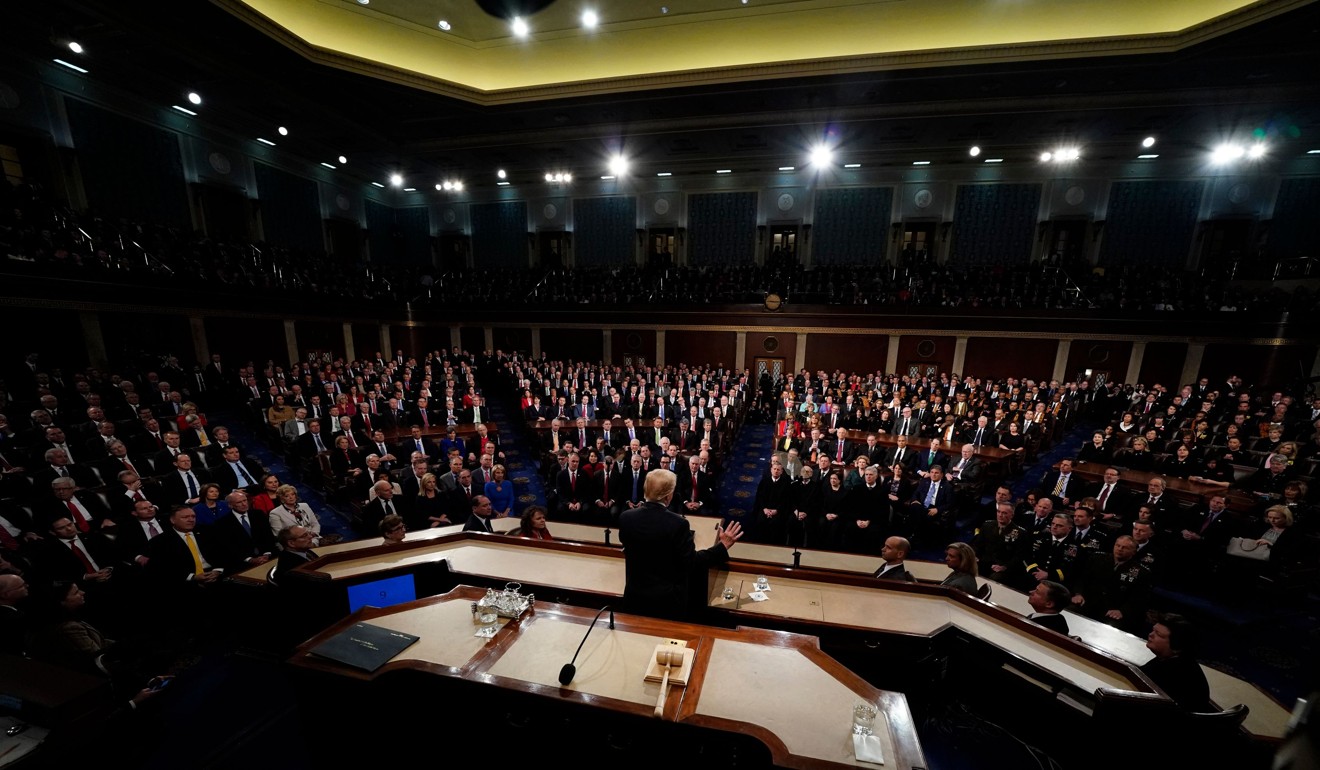
Trump’s posture makes relations with Beijing no easier
In his first State of the Union address, the US president effectively lumped China together with rogue regimes and sowed the seeds of a nuclear arms race
Amid trade and nuclear tensions abroad and fear and loathing over immigration reform at home, the first State of the Union address by President Donald Trump was anticipated with some trepidation.
But the most unconventional and divisive US president of modern times delivered a surprisingly conventional report card, heavy with bragging about domestic economic achievements set in motion under his predecessor and light on substantive policy.
However, the main takeaways for China and global stability are not so benign.
Trump used the occasion to list China along with Russia as a rival to the United States, in terms that effectively lumped them together with rogue regimes and terrorist groups as rivals “that challenge our interests, our economy and our values. In confronting these dangers … unmatched power is the surest means of our defence”.
Pressing Congress to approve more defence spending, he added, referring to North Korea: “As part of our defence, we must modernise and rebuild our nuclear arsenal … making it so strong and powerful that it will deter any acts of aggression.”
Whether all this was just rhetoric or whether it will be translated into policy remains to be seen. But it is worrying that Trump called for increased spending and a nuclear build-up, given the existing US stockpile. It smacks of cold war mentality.

Read in conjunction with a commentary in the PLA Daily, the mouthpiece of the Chinese military, calling for an expansion of its nuclear stockpile as “geopolitical uncertainties mount and the US appears bent on a nuclear build-up”, the potential for a nuclear arms race is frightening.
On the economy, Trump’s remarks again raised the question of whether he really believes that trade can be mutually beneficial or sees it as a zero-sum game, with a pledge to renegotiate bad trade deals to protect American workers and intellectual property.
This comes ahead of a report by the US Trade Representative on the theft of American intellectual property with potentially explosive implications for Sino-US relations
On immigration, a domestic political flashpoint, there was some good news for illegal migrants with the offer of a chance to become citizens, and some worrying for China in the ending of “chain” migration by limiting sponsorships to immediate family.
If China is declared a rival it will surely be one. If the US decides it can be a friend and strategic partner it can be a good one.
The Chinese government includes people who are hawkish towards the US, and those who admire it.
The posture Trump has adopted doesn’t make it any easier for those who want to improve relations. That said, being a good friend or strategic partner does not rule out vibrant competition.

